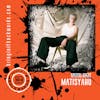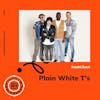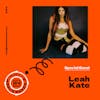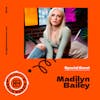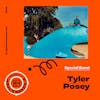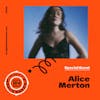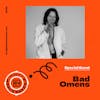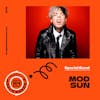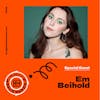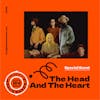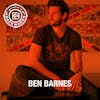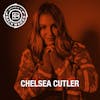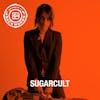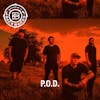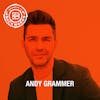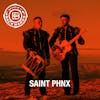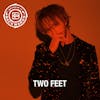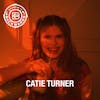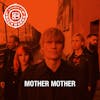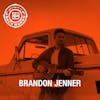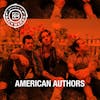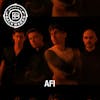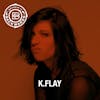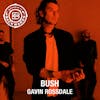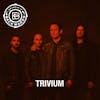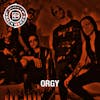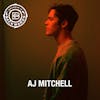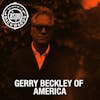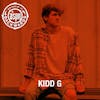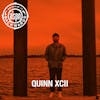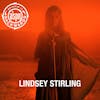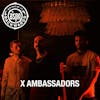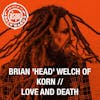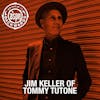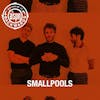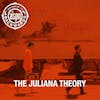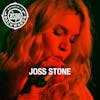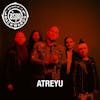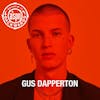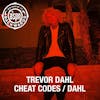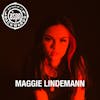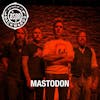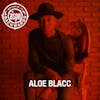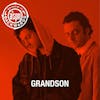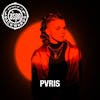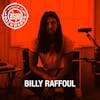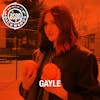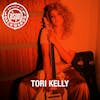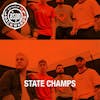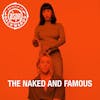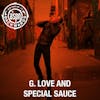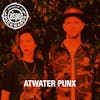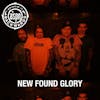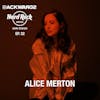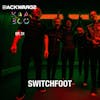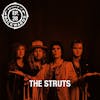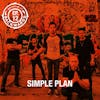Interview with Chrystabell
We had the pleasure of interviewing Chrystabell over Zoom video!
Texas-based, avant-garde pop artist Chrystabell shares the “Silent Scream” music video and her new album Midnight Star via Love Conquered Records. The eerie, vintage-style black and...
We had the pleasure of interviewing Chrystabell over Zoom video!
exas-based, avant-garde pop artist Chrystabell shares the “Silent Scream” music video and her new album Midnight Star via Love Conquered Records. The eerie, vintage-style black and white video was written/directed by Polish filmmaker and longtime collaborator Archon.
A sci-fi fantasia assembled as a collection of episodes, Midnight Star tells the story of a beneficent being seeking to save humanity from life on a troubled Earth. Chrystabell fully transports listeners into a dimension of her own making with a collision of post-disco, synth-pop and space-age psychedelia, while her unearthly storytelling offers up tender instruction for living more ecstatically. She has released three previous tracks – the enchanting title track “Midnight Star,” the revelatory “Suicide Moonbeams” and the brightly kinetic “Breathe Into Euphoria,”
Chrystabell is a hyper-creative polymath, whose past endeavors include four acclaimed albums, sold out performances around the world, a series of musical projects with filmmaker/luminary David Lynch and a central role on Twin Peaks: The Return. Having launched her career in the late-’90s with the neo-swing band 8 1/2 Souvenirs, she first joined forces with Lynch for a song featured in his 2006 film Inland Empire, and later worked with him on her 2011 album This Train and the 2016 EP Somewhere in the Nowhere. Over the past few years, she’s undergone a full-tilt liberation of her creative spirit that finds her embracing a more potent sense of freedom.
We want to hear from you! Please email Tera@BringinitBackwards.com.
www.BringinitBackwards.com
#podcast #interview #bringinbackpod #Chrystabell #MidnightStar #NewMusic #zoom
Listen & Subscribe to BiB
https://www.bringinitbackwards.com/follow/
Follow our podcast on Instagram and Twitter!
https://www.facebook.com/groups/bringinbackpod
We'd love to see you join our BiB Facebook Group.
Hello. It is Adam. Welcome back to bringing it backwards. A podcast where both legendary and rising artists tell their own personal stories of how they achieve stardom. On this episode, we had a chance to hang out with Krista bell over zoom video. Krista bell was born and raised in San Antonio, Texas, and talks about how she got into music. Her dad was a dentist hot air balloon pilots, and he also owned a cemetery, which she still lives at. Now. She lives at the cemetery and runs it. So we have a fascinating conversation about the cemetery she lives at and runs and operates still to this day. And of course about her music career, her mom and stepdad owned and ran a studio. 2 (1m 36s): So she was always around music. She talked about graduating from high school and moving to Austin, Texas to pursue music. She went in for a job interview, I think for a cocktail waitress job. And it turns out the person interviewing her or her husband was in a band called eight and a half souvenirs. They were looking for a singer. They were signing a major labels. So, so she got that job instead of the waitressing job did that for a while. We talk about how that band eventually ran its course, and she ends up moving to Los Angeles, getting a manager who introduces her to David Lynch, the David Lynch, and she talks about her interactions with him. 2 (2m 17s): Writing two records with David Lynch, the solo album she's released and all about the new record, which is called midnight star. You can watch her interview with Krista bell on her Facebook page and YouTube channel at bringing it backwards. It would be amazing if you subscribe to our channel like us on Facebook and follow us on Instagram, Twitter, and tick-tock at bringing back pod. And if you're listening to this on Spotify, apple music, Google podcasts, it'd be awesome if you follow us there as well, and hook us up with a five-star review, 3 (2m 48s): We'd appreciate your support. If you follow and subscribe to our podcasts, wherever you listen to podcasts, 2 (2m 54s): We're bringing it backwards with Krista bell. Well, I'm Adam, by the way. And this is about you and your journey and music, how you got to where you are now. 4 (3m 3s): I am in Lavanya, Texas Asking about my location. 2 (3m 9s): Sure. 4 (3m 11s): Or will you be more metaphorical? Where am I in the journey? 2 (3m 15s): Both. I mean, I actually want to know exactly where you are currently. You're in Texas, but you're originally from Texas, aren't you? 4 (3m 21s): Yeah. San Antonio originally Lavanya is Southeast of San Antonio. So very close by, but more of a rural country feel. And my family's had property out here, all of my life. And when pandemic hit, it was just time to be close to nature and, and take down the pace of, of my life. And this was the perfect place to be. So I've been here ever since it's a good home base. I do a bit of traveling, quite a bit of traveling, but I I'm coming back home to Livonia more and more. And it feels really nice. So I think I'm, I'm accepting that this is home and I didn't expect for rural Texas to be home to me Over. 4 (4m 4s): So, but it's, it's a surprise and it's actually really, really quite wonderful. 2 (4m 10s): That is I did I read that you, you have a family run cemetery, is that what you're living? 4 (4m 14s): Yes. I live on cemetery lane and actually my father, my father named the lane probably 30 years ago, we have an easement that goes right to the cemetery and, and he called it cemetery lane and there's a beautiful natural burial cemetery on my property and we're a public cemetery. And the whole deal is that we just turn, we just returned bodies exactly how they came into the, into the earth. So that's no embalming and no materials that won't biodegrade naturally go into the coffin. And generally we love to just very someone with an organic cotton trout. 2 (4m 58s): Oh, interesting. So, wow. Just do all of that. Then the coffins you use are those all biodegradable then as well, 4 (5m 7s): The booboo or, or wood, but even even better for us is for the body to be in a shroud and go directly into the ground that way. So it's really a much faster process of decomposition. And it's really just this lovely thing that when people understand that it's available, that it's an option. They just light up because it feels really right. It feels really resonating with our just natural state. Like the idea of going back in the earth and being planted, you being the plant next to a tree or having a lavender Bush or some kind of herbs or wild flowers on top of you and you becoming part of the ecosystem as your last gesture, rather than what's happening with contemporary burial, which is not good for the earth and really not good for our spirits either. 4 (6m 11s): And I could talk about this all day. It's a really beautiful thing that that came into my life. It was my father's project to have this natural burial cemetery. And I just really didn't get it at the time. This was many years ago and he was our first natural burial. And 2 (6m 33s): Was he, was he the, oh my gosh. Okay. Sorry, go ahead. I've loads of questions here. 4 (6m 39s): It's really, it's, it's such a lovely thing. And I did, but you know, my daddy always said, Hey, I want this natural burial to be our legacy. And I was like, but dad, I'm working on this whole music thing right now. And you know, I just didn't get it until I got it until I got how special and magical it is to be able to offer people this return to earth in the most simple and natural way. And it's also important to me to be a very affordable cemetery and the place to be a sanctuary and, and the kind of location you'd want to just be there to explore because it feels really good and it's beautiful. 4 (7m 19s): And not just that it's a cemetery, but that you might choose to go to this place for a picnic or a celebration of some kind. So there's a lot of intentional energy around making the space itself, really inviting and celebratory as opposed to like heavy and, and, you know, dark and like, like that. So, yeah. That's my side hustle. 2 (7m 43s): Yeah. When did your, when did your father start the cemetery? Was that when you were much older or was it something that you kind of grew up with? 4 (7m 51s): It was actually, he always had the cemetery really throughout my life. It was originally an historical cemetery. So we had some graves that were buried on the property that my father bought and he had the city come in and deem it and historical cemetery because the graves were over a hundred years old. So initially it was just a cemetery and he incorporated it so that he could donate plots and then take deductions from his income tax because he was very crafty like that Later, he had the epiphany that he wanted this to be a natural burial cemetery. And it was very important to him that it be affordable because really there's no reason for, for plots to be extraordinarily expensive. 4 (8m 36s): That's just a part of the modern industry. The, the modern cemetery industry plots can still be very affordable and it still is a lucrative business. And of course the cemetery needs to be able to take care of itself and be maintained. So there is some cost involved, but, but my cemetery is so beautiful and so natural and peaceful. And it's also the absolute, most affordable cemetery, maybe anywhere ever for what, for what you get for the experience. So this is just this lovely thing that, you know, my father, it evolved for him. And it was really towards the end of his life that it came to him that he really wanted this to be a natural and affordable cemetery. 4 (9m 22s): So by that time, that was like 2009 or so. And, and so since then, it's been a bit of a slow burn for me to really embrace it. And honestly, at pandemic, when I moved back here, my mother lives here as well that we really decided to put heart and soul. My mother, especially she's like the angel that handles people that are in there, you know, really tender moments of, 2 (9m 50s): I can't imagine having that gig, like, yeah, it takes a special person 4 (9m 55s): She's made for it. She's she's like made of compassion, patience, and love. And we have even a therapy, miniature horse who we can bring out. 2 (10m 8s): That's amazing. 4 (10m 9s): Macaroni is like emergency emergency call. If it's, if it's getting a little hairy macaroni can come in and smooth, everything out, 2 (10m 20s): The horse's name is macaroni. That's a great name. 4 (10m 24s): Yeah. He's, he's a precious pumpkin. We've got another miniature horse named Vanessa. She's not as, as viable as a therapy pony. You kind of need some therapy after being with Vanessa. She's a little high strong, but They're a good team. 2 (10m 40s): Wow. That's interesting. Did I read that your dad was a, he's a, he was a dentist. It wasn't, he, 4 (10m 48s): Yes. I actually had two amazing father figures. One was a dentist and also a commercial hot air balloon pilot, which he did on this property actually right. Adjacent to the cemetery was where he took off in his hot air balloon every year for 30 years when I was growing up. And he and I participated in some world cups together. 2 (11m 11s): And as a hotter in a hot air balloon, that's like the most terrifying thing ever for me. I'm not going to lie. Like I'm scared of Heights, but I love rollercoasters stuff like that. I know I'm strapped in. I'm good to go. I would like, I would jump out of a plane. I would skydive, but there's you, there's no way I would get into a hot air balloon and actually just sit there and like have to like absorb being that high up in the air. 4 (11m 35s): That's fascinating because I am probably the opposite. I haven't had the chance to do a skydiving. I haven't been seeking it out for myself. That opportunity. If it fell in my lap, I would probably have to. 2 (11m 48s): Yeah. I've never done it either, but it's something I'd be interested in. I would do well over 4 (11m 55s): Because the balloon is so gentle. It's like, you just blow it up. You just, it's almost like, I mean, you're moving, but unless the wind is really fast, you just feel like you're kind of hovering, but you see this world below. It's a really lovely perspective. It's, it's very calming for me, but I can see, you know, from someone else's point of view that 2 (12m 17s): I'm literally giving me anxiety thinking. No, no, no. But like overlooking, like if I was in the balloon, like looking down, like I can't even imagine, like I would just think I was going to fly out of it. 4 (12m 29s): Well, only if you jump or you really have to try hard to, 2 (12m 34s): I can't even do the Ferris wheels that go, like, if I'm like going fast and it's up and down, like, I love it. I'm strapped in. I'm good to go. But like the fact that things like slowly tune it's and then you can just kind of like, feel it rocking. Like it freaks me out. I cannot do it. 4 (12m 53s): Well, I do not suggest that you do that unless you wanted to push yourself out of your comfort zone for what may be lying. But beyond that, that fear 2 (13m 2s): That's a bit much, I think for me, Maybe someday, 4 (13m 10s): My father was, you know, he was a dentist, the third generation dentist, hotter balloonist. He owned a bed and breakfast as I was growing up and he had this farm. He also did a lot of, he was a real estate and he was a landlord. He was a busy man, but also like president of the bachelors club and chairman of the board for the Texas transportation museum. Like he was just, he was really full of energy and full of life and loved people. And then I had stepfather who was equally astounding as a person who was a composer producer engineer. And he and my mother owned a recording studio as I was growing up. 4 (13m 52s): I mean, full spectrum influences on my life, which I'm so great every day more. I realize how fortunate I am to have had the unusual, eccentric upbringing that I did at the time. I was just so embarrassed about free thing that my parents did. And now I'm just like, oh my God, they were so cool. All of them. So cool. 2 (14m 17s): Well with, with that, like having your stepfather and your mom own and operate a studio, like, was that something that you were able to access to it from a very early age? Like when do you get into music? 4 (14m 28s): Yes. I mean, I, when you own a recording studio or in my case, my parents own the studio and they were such hard workers, so it was everything I could do to get out of the studio. I was like, can we please go home? We've been at the studio for like hours. So I really had a major flip at a certain point in my life when all they wanted to do was get back into the studio. But by that time, the studio was long gone. But yeah, I did. I started music at a very young age with, I mean, I was doing, I was a session vocalist by age 11 because we were doing Jake Needed some kids or, you know, you, you, someone to do the squeaky high harmony for, for the, you know, in the jingle. 4 (15m 14s): And that was, you know, just part of like, it was in my DNA. Like I was around all the time. So it got really comfortable in the recording studio. Like, that's my jam. Like I, I'm one of those people that, you know, in, in some ways you can look at a recording studio and think it's like super sterile and, you know, like, but I, I just, I love, I love that have really positive associations, even though I wanted to leave the studio. Cause we were there all the time. I still loved it. I still appreciated what my parents did. And my mother was, you know, leading all the sessions and my stepfather was the composer producer engineer. They did a thousand jingles for the San Antonio and that area. 4 (15m 56s): Wow. And my mom was singing the jingles. So it was, yeah, it was, it was really great. It was a really great foundation. And I just love being in a studio now and love that process of creation, even though it's like, it gets the heart racing and I I'll start to sweat if I can't figure something out, but that achievement of making breakthroughs in the studio, it's like everything to me. I love it. 2 (16m 23s): When do you start law? Cause I saw that you joined a band out of high school and you, your, or maybe that bands started while you were in high school that ain't have survived it. Yeah. That's what I was wondering. But you, so was that a band that formed when you were in high school or was that something that started when you moved? Because I saw that you moved to Austin and right out of high school, like tell me about the, 4 (16m 54s): Yeah. So eight and a half souvenirs was the band I joined after leaving San Antonio graduating high school and wanting to get to the next level of, you know, artistic endeavor in my life and felt that it was imperative that I leave San Antonio and go an hour and a half north to Austin, Texas, and SU you know, what frontier was, was going to be discovered there as far as my career aspirations. And I really wanted to be an actor at that point because even though, I mean, all my life, the only kind of like, yes I ever got was for, to be in a Kung Fu film. 2 (17m 34s): Oh, I didn't see that. But that's in jet Lee was in the movie. That's amazing. 4 (17m 38s): I know it's pretty, pretty great wild experience. And so at that point I kinda thought my yes, that I got was, was for acting. So I was, I was pursuing that in that moment and in the course of like looking for a cocktail waitress job, cause I thought it would be so romantic to be a struggling actress slash cocktail waitress. Doesn't that sound great at 18? It did. And so I was trying to get a job at this one place and it turned out that the woman who was interviewing me was the wife of the drummer for eight and a half souvenirs. And they were just the biggest thing happening in Austin at the time vocalist. 4 (18m 20s): And they auditioned a lot of women. And at that time I think the reason I really got it is because I was just open to the possibility, but had zero expectation or even like, I was just like, yeah, sure. Let's see what happens. Right. 2 (18m 35s): Desperate for it. I 4 (18m 37s): Was not desperate how, how that works out. It was just, it was destiny and I got the job and yeah, it was a beautiful experience, great education, really. I call eight and a half, seven years. Like my university, it was four years and it was right after high school. And I was performing with phenomenal musicians, singing in Italian, French, and in English, I'm doing songs like Michael Porter. And I, of course she went and, and then Dick jingle Reinhard, you know, like we were doing polo content, all of this very continental, very like enriching experience of, of, of being in a band. 4 (19m 18s): And that was, yeah, that was my education. 2 (19m 21s): Did you, I mean, you said you're in the band for four years. Obviously. You, you made it to Austin as in that your, you didn't move to Austin to join in, to have souvenirs, you move to Austin, then you land, you land the gig with eight and a half, seven years. And with that band, like you said, you're in the band for four years. Like, did you guys tour around the country? Like, like, was it like, that was your gig at that point, 6 (19m 42s): American corn farmers, a proud and chosen profession, inspired through generations, tested resilient, and committed to giving back as much as they're growing, pushing the boundaries of what's possible with every bushel while replenishing every increasingly precious resource, like the reduction of soil loss by 40%, with every acre grown in a world where sustainability matters more than ever, we need to all the help we can get. And there's no greater resource than the capable hands of American corn farmers 7 (20m 12s): Home. They say it's where the heart is. They also say it's wherever you make it. They don't say it's where you unload your stuff. Get tired. Halfway through unpacking, use some boxes as furniture, realize your elements in a box that doubles as a nightstand, don't want to buy a new nightstand and use a tall as an oven, mittens dead, but no matter where you call home, Geico makes it easy to bundle and save on renters and car insurance easier than grabbing a piping hot pan with a tall that's a bit too thin and trying to quickly get it to the counter. 2 (20m 43s): Hey, everyone. We wanted to tell you about another music podcast that we've been loving. The broken record podcasts from Pushkin industries, music industry icon, Rick Rubin, along with producer, Justin Richmond and authors, Malcolm Gladwell, and Bruce Headlands. Sit down with the artists you'd love for unparalleled creative insight into your favorite music. You'll hear revealing interviews with some of the most legendary figures in music like Neil young, Andre, 3000 Alicia keys and Bruce Springsteen. And you'll learn about up and coming stars like Michelle Zonar, who talks about her big plans for her dreaming indie pop band, Japanese breakfast. This April, they're celebrating the red hot chili peppers, new album with John for Shantay Anthony Kiedis flee and Chad Smith, all in conversation with Rick Rubin. 2 (21m 30s): They share stories and songs from the new album, and also never before heard insights about their decades, long dynamic and chemistry, listen to broken record wherever you get podcasts. 4 (21m 42s): That was my gig and they were doing great. And they'd had a fan base that they'd cultivated over the previous, like five or six years. It was such a sweet situation. Like they did all the work, their singer left. I like stepped into something that already had momentum. Like, trust me, I have no idea how, how fortunate I was. And it was the swing scene. So super glamorous and, and everything was really beautifully laid out for me. And I just had to step in and say yes and I did and had a remarkable experience and traveled all around the country and, you know, recorded several albums and had this onstage experience that was invaluable because everybody had their stuff together. 4 (22m 30s): And I just got to be myself and explore who I was on stage. And I knew I, I was, it was so beautiful. Cause I know I knew so little. It was really, it was really like a heart heart focus like, oh wow, this, this music is so fun to dance to. So I had my own little actions and moves and, and I had just full freedom to explore myself as a performer. And then, because it wasn't me as a solo artist, it was a double-edged sword because I felt liberated in that I was kind of playing apart at the same time I was doing music that I likely would not have done had I been really just following my own heart, but I was still so young and impressionable that it really kind of, you know, it, it really got into me and, and in a, in a positive way, it was a real fun uplifting, you know, danceable thing. 4 (23m 28s): But when the swing scene ended, it was really, and the, and the band dissolved. It was really about figuring out who I was as a musician songwriter performer when I wasn't playing that part. So that was the, that was the next level of my exploration as an artist. And it was, you know, it's, it's all, it's all a trip, it's all a trip and the trip doesn't end. It just keeps going. And we're good. 2 (23m 58s): Was it something like when, when the ban dissolves, do you stay in Austin or do you move to LA, do you move to, and you know, stay in Texas? Like what, what, what's the next stop? 4 (24m 11s): The next stop was LA. Cause I kinda had that thing happened where I was discovered by this manager named bud Prager who had sold a hundred million albums in his career and basically gave me the line. Like he, he came to see it and F seniors in Los Angeles, we played at this one private private venue called the Buffalo club and bud came and, you know, he was like, great, I love you. We're going to work together, ditch the band. And I was like, never. And then the band broke up and I was like, Hey bud, can we, can we, can we see what what's possible? 4 (24m 52s): So he was in LA, I was living in Texas, but I went to LA a lot and it was bud who really gave me my next level of education. Let's call that like grad school. And after having managed foreigner Meth and these just like massive bands, he had tremendous insight into the industry and he began basically dismantling all of my illusions about, you know, success and, and really telling me, you know, in a more reality-based framework, what was possible because at 18 I was signed to a major record label. Like I thought it was only skyrocketing from there. 4 (25m 36s): You know, like you don't, you have no other perspective. And, and it turns out I still had a lot more to learn and, and bud was instrumental in just giving me some grounding. And I think ultimately he was trying to help me to find my identity as an artist in the way that he could provide a path that he could provide. And what he eventually came to from his perspective was that I was a very visual artist, a very visual performer. He did not think that I was a great songwriter because his idea of a great song was, feels like the first time. 4 (26m 17s): And I'm just like, that's not that wasn't where I was coming from. I was, I was like all about, you know, it was a bit more of art than that. Both my, both my preferences personally, in what I was writing and all that jazz. So, so he was like, okay, we got to find this girl a connection in the television or film world where she can, where she can be filmed, performing and going to kind of be how, how he felt my best chance for making it. Cause he really, after having foreigner, he wanted to be back on top again, like he wanted to feel it, breathe, it live it. I mean, he was like on top of the world with that act. 4 (27m 1s): And even though we had all the money in the world and had experienced all the success, he wanted it, he wanted it again. So he was investing in me to try and figure that out, even though he would tell me over and over again, not only is it a long shot, Christabel, your chances are so extremely slim to none, but this little window we're gonna, we're gonna shoot for it. And I'd be like, okay, okay. And he pulled a favor to a favor, to a favor and got me 15 minutes in a room with creative artists, agent Brian Loucks. And after being with Brian, I don't know, probably like nine, 10 minutes. 4 (27m 40s): His time was expensive, so we didn't waste any time. He said, you know what? I think, I think David Lynch is gonna, is gonna be interested in working with you. And Yeah. And that moment, that moment changed everything for me, but it was even, you know, from, from that to, I mean, it was, you know, just all these little incremental sparks of, of potential and possibility that became years of years, of years of, of, you know, tumultuousness and beauty and, and all of the things that go into an artist's career. 4 (28m 20s): I've had a bit of an odd trajectory in some ways, but I've been super, super blessed and there's been some interesting potholes. And then some like, you know, some soaring like in a hot air balloon and then some devastation, but it's also beautiful. And I, I, I wouldn't change a thing because I'm here with you, Adam. 2 (28m 44s): Yeah, exactly. And you have a new record out and, but before we get it, I'm just curious with, okay, so he, Brian suggests David Lynch, then you meet David Lynch obviously, and you've worked together for a number of years, but how did that first introduction go? Like, were you probably a fan of his prior to meeting him? And was that like a kind of a surreal situation to be in 4 (29m 10s): You think a surreal situation? To me That's a given in whatever capacity, just because you already have this association with David. Like if you're, if you're a fan of his work, there is this kind of patina, even around him or a glee of like intrigue and mystery. And then he ends up filling that out with the rest of who he is, which is warmth and compassion and, and wit and humor. And you're like, wow. 4 (29m 50s): So yes, it was surreal. There's all kinds of stories I could go into, but I'll, I'll just cut to on David, on his doorstep and knocking on the door and Bud's there and Brian's there. And, and everyone's nervous because we just, you know, it's, it's just a lot of heightened energy in that moment. And David opens the door and just disarms everything. He's got like cigarette hanging out of his mouth and he just opens his arms. He's like Krista bell. And he just gives me the biggest hug. And I don't think he haunted Brian or, or bud, but I think that envelopment and, and in a way that like affirmation that he wanted this meeting to go as beautifully as any of us did because he was looking for someone, he was, you know, he was, I guess that was what I figured out much later on is that he was as helpful as hopeful as I was that this was going to work out cause he's a creator. 4 (30m 53s): And, and he had all these tracks of music and had been looking for a voice and a person to, to create the full vision coming to life. So, and I needed tracks and I needed a producer at that time. And I was just looking for what destiny was providing next, in my reality, this was after eight and a half souvenirs had dissolved and that David so beautifully stepped into that role was just magnificent. And then the reality of me still being signed to RCA, Victor, and not even able to make music with him and all of these other things came crashing down. 4 (31m 35s): But that day of bliss that we met was just, you know, it couldn't have been any more perfect and lovely. It was, it was just the fairy tale. It really, it would have been a fairy tale with any producer. That's how beautifully we connected, but it was also David. So I, I just feel tremendously blessed for that experience. It was, yeah. It was a cherished memory. That first date. 2 (32m 1s): Yeah. Well with that, I mean, you said you were assigned to a label and you couldn't really do much, right. It being under contract with them, like at what point do you, are you able to start actually working with David and putting out songs? 4 (32m 15s): Yeah, it was, it was several years later after that, because there was this like excitement and then it was like everything just deflated because he, at that point really wanted to get moving. Cause he had the juice flowing and it was time and he knows the importance of like riding that wave and, and it was all just, it was all just impossible at that. So it took a while for that to come around again. And, and what happened actually was a couple of years later, Brian saw David at a party in Hollywood, some Hollywood party and David asked about me and he said, you know, does Krista bell, does she still have the record label? 4 (32m 59s): Is she available now? And Brian said, let me check. So Brian got back in touch with me and I was no longer thank God because bud was able to, because he knew the vice president of BMG, he was able to extract me from my contract, which was a miracle, like so many people didn't have that luxury. Like somebody just locked into contracts for their careers that they couldn't escape, but I was able to get out of my contract because of bud. And then I was at that point, yeah. Super available to work with David, but I, it has kind of happened on its own like that. It's not like you can be like, Hey David, are you ready? 4 (33m 39s): Because honestly, I didn't know what the vibe was. And it's obviously got it because David had the studio, it was his music, it was his production. He was paying for all of it. So he had to be the one to rekindle the flame and he did, and that was the right time. So I went back and we started working together. But even from then, that was probably a couple of years after our first meeting. And it wouldn't be for many reasons, it wouldn't be a decade until my solo album, you know, it's actually not, it was Krista bell and David Lynch train at 2011. That, that was, that was the record that we first put out together. And then we put out another one a few years later, 2 (34m 22s): But it's, so it took a while. I mean, it sounds like it took a while before and ended up working and then, you Know, obviously, but like between there you had you've released or you recorded a couple of solo albums, right. You're doing your own thing before. 4 (34m 37s): Do my own thing. I was a hired gun for a lot of, you know, corporate gigs and bands that had extraordinary situations, bands that were like performing for these just incredible private events. And I was, I was doing well at that time. And you know, when you are the golden voice from Microsoft and in the center, you know, in Las Vegas and this on a platform in the center of 8,000 executives and then, you know, improvising opera with a spotlight on you at eight in the morning, I was like, okay, this is, this is, this is fun. And I even enjoyed it, but I was not emotionally fulfilled at the level I wanted to be. 4 (35m 22s): And, and that whole decade was really a finding of myself and exploration. And, and then, you know, some relationships, I, I, I, I came out, I came out of the gate, you know, at 18 and into this band and like full throttle. And then there was this kind of like time, you know, really a decade that it took to really kind of re recalibrate and refocus and discover myself and be able to step into what was going to be the next part of my life. And so it's like, I can look back and be like, wow, that was a long time. But I think it was perfect. It was absolutely perfect. It was what I needed to be able to embody the music that David and I had written together. 4 (36m 6s): Cause it was deep music was like, and to be able to perform it, like really, really give it what it deserved. I needed some more life. So I got some more life. And then I, and then I had my debut album and then a lot of things just really started moving. Nice. 2 (36m 27s): So once you put out, yeah, your debut record comes out with 20 17, 20 11, 12 0 20 11. Sorry. And then that's what with him. And, and then you put another record out with him in 2016. And then you went back to his solo album in 2017, correct. Okay. No, 4 (36m 43s): I've been writing the whole decade. I was writing. I mean, I wrote, I dunno, five albums at least, Oh God. So many, so much that I was really, really going for it, but it was still, you know, there's all these processes that have to happen to for an artist, like to put something out in the world that so much, you have to have confidence, you have to have self worth. You have to really feel like what you're doing and creating is is, is something that the world needs. And I was discovering that within myself. So I was still in practice. I was still dedicating my life to music and there was still life to be experience so that I could bring all the pieces together and, and be an artist that was really offering my heart and soul and felt really like grounded in that, not like that. 4 (37m 42s): I was just kind of trying to hold on to things or bring something together that wasn't, that wasn't quite realized I had to come into myself. And so all of that was was right on time, but it took some time. 2 (37m 53s): Sure. Well, you've recently, I mean, you released a record in the beginning, what, two months ago now? Roughly over two months and the night star. Tell me about this, this album. 9 (38m 4s): Hey kiddo. How was the hell? Did you learn anything? 10 (38m 6s): Yeah. That ripping power induces, spontaneous joy, 6 (38m 10s): The icon pass lets you do you@fiftydestinationsworldwidefromtwofortynineadultdropinfornextwinternowandsaveiconpass.com. 11 (38m 20s): The gifts are all yours at JC Penny's happy birthday sale celebrate with 30% off select Levi's for the fam. Plus save up to 50% during our biggest home sale of the season. Oh, and this Saturday only the first 120 customers in store get a coupon for $10 off at $10 purchase. Shopping is back. JC penny Levi's offer is four 17 additional offers and coupons do not apply home. Offer ends four, nine coupon giveaway in store. Only exclusions apply valid for nine must be 18 and older. The C-store jcp.com for details. 4 (38m 54s): Well, it's the, it's my first foray. And so all electric sounds like it's all set. Like it's purely scent. I think there's one. I mean, there's a, there's a few warrants and a few strings, but there were first, they were synth. And then we replaced, you know, with, with some, with some real instruments and that created the potential for like just expansion and experimentation. And it was pandemic, although we started it before pandemic, but then there was just like, wow, this liberation, we didn't have a band that was kind of there and trying to accommodate different things. 4 (39m 35s): It was just me and Chris. And we had, you know, been creating our rip RTA as, as songwriters for, for a decade at that point. And we just like the goal was to make really, really strong songs, songs that I wanted to sing for the rest of my life songs that I wanted to embody when I was in front of an audience, which is really kind of like my that's that's my ultimate goal is to bring a show and to really like have a connection of like a visceral exchange with an audience. So to do that, you need great songs. So we just, we just tweaked and tweaked and tweaked until we thought we had the best material. 4 (40m 20s): And it was in this container of this kind of Saifai adventure that was happening because you need something to hold it together. Like you need a cradle, let's say for, for the creation and you need some kind of containment. So that you're just not like in the stratosphere constantly. So our container was this kind of Saifai intergalactic, you know, sparkle, electro pop world that we're like, okay, why not? Like there is, let's just let go of all the limitations, all the stuff that I was doing before that was moody and, and sexy and dark and like a little heavy and definitely more like, you know, red wine, nighttime Moonlight, sophistication kinda kind of vibes, which I love. 4 (41m 16s): That's why I'm all about it. This needed to be a bit more sparkly and iridescent. And I was really ready for that in my life. I was ready for that as a musician to like to give it some glitter, but not as a little, it's a little clammy and it's kinda like, it's like a space cabaret And I just had to be willing. I just had to be willing to explore. So it was like my inner exploration became my musical exploration became this, you know, Ascension into this other realm of music that felt really good. 4 (41m 57s): And the music was really making me happy and making me feel strong and powerful and the journey of midnight star as a character and as an album was reflecting my own personal awakening and Ascension. So it was all this kind of mystical alignments that were sparkling and, and midnight star. The album is like the physical and oral representation of all of it. 2 (42m 27s): Was this something that kind of came together over the course of the pandemic? Is that what you said? Or it started after the fact 4 (42m 34s): Started before, but it started before actually in January of 2019. And then I taught you, I'm sorry. January of 2020 started in January of 2020. And then I like went off to Scotland and did all these things and in the process of that pandemic happened, but we had our first demos, like six songs before pandemic, once pandemic happened, I moved back to cemetery lane. We put together a demo studio here and we just started, you know, and that was, and it wasn't, I wouldn't call it a pandemic record, but definitely there were parts of me because of the stillness, my relative stillness during pandemic, I was able to do a lot of personal work that was infusing the record, but it wasn't like some direct response, like something happy, cause everything is shot like this. 4 (43m 33s): It was the natural calibration for the experience that he and I were both having, but not like, you know, in, in protest it was in harmony, maybe, you know, more like that. And it was, you know, definitely a way super fun to, to go into that world and be creating and for midnight star to be coming to life in the midst of everything that was going on and to have the time and space to go deep because I wasn't touring. 2 (44m 7s): Right. 4 (44m 8s): Yeah. Or doing, 2 (44m 11s): Yeah, you add a lot. You had nothing but time. Right at that moment. 4 (44m 14s): I wish that was the case. There were a lot of other things happening in my life at the moment, but the stillness, the not, I mean, not trap, not going Twice a year. There was definitely relative stillness past decade. 2 (44m 29s): That makes total sense. There's an incredible record, had a chance to listen to it earlier this week. I really, really like it. And thank you so much for being flexible on the time on this and in doing this, I really, really appreciate it. I have one more quick question for you. I want to know if you have any advice for aspiring artists. 4 (44m 48s): So, you know, it's kinda, maybe it's kind of cliche and mundane, but just keep doing it. If you're, if you're, if you don't have a plan B, if this is really, you know, who and what you are, I call them lifers. And you know, if you're a lifer, if you're a lifer, just keep going, keep doing it, don't give up. And something that I think is very powerful is really visualizing the career that you want and creating goals. And just seeing yourself on stage where you want to play. And really don't be shy about dreaming the life that you want and focusing on it and seeing yourself, visualizing yourself, stepping into that life. 4 (45m 36s): It's a very, very powerful tool. Once it makes you happy, it makes you happy to be in that imagination process. And it sparks ideas and everything just can, can have the opportunity to come into harmonious flow when you're in a positive vibration around your career and around who you are and what you want to give to the world. And, and that clarity can really go a long way. And sometimes it takes a long time to get there and that's okay. That's okay. Keep going forward. I am living proof. Just don't give up. There's such beauty in store. 4 (46m 16s): There's such loveliness in your potential and your dedication.
Chrystabell
singer/songwriter, model and actress
Bio can be found here: https://www.dropbox.com/s/xc5t1ogvp4d66fh/Chrystabell-Midnight%20Star-Bio.pdf?dl=0
Featured Episodes
Here are some great episodes to start with. Or, check out episodes by genre.























